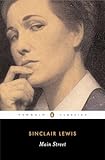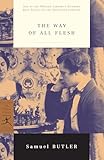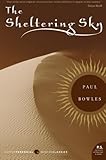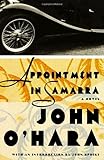 Sophie’s Choice is a sensational novel. I do not mean sensational in the strictly complimentary sense. Yes, this novel is a barnstormer. But when I think sensational also think tawdry, exploitative of our baser emotions.
Sophie’s Choice is a sensational novel. I do not mean sensational in the strictly complimentary sense. Yes, this novel is a barnstormer. But when I think sensational also think tawdry, exploitative of our baser emotions.
I think the storyline has percolated pretty well through the American cultural consciousness; I hadn’t read the novel until this year, but I knew of the titular choice. Without giving it all away to the uninitiated, the novel is about a love triangle in Brooklyn in 1947: Stingo the callow Southerner, Nathan the manic Jew, and Sophie the beautiful Pole–a Holocaust survivor (and a Catholic).
I loved the first chapter of Sophie’s Choice, wonderful first-person stuff about a young Virginian trying to make it in the big city. I had just finished The Moviegoer, and I was thinking this was kind of like The Moviegoer goes to New York. I do, on occasion, love the self-deprecating, over-educated, over-sexed men of literature. It would be downright un-American not to–they are the majority of our modern literary output.
I stayed up well past my bedtime to finish Sophie’s Choice. I read its 500 pages in a day and a half. I was gripped, to be sure; I laughed, cried, and so forth. How could I not cry? It’s about the Holocaust.
But upon completing the novel and reflecting a bit, I felt a little sleazy about the whole thing. It’s not just about the Holocaust, for starters. There are two main narratives at work in this sad and sensational story: Sophie’s Auschwitz horrors, and Stingo’s penile travails. Yes–Sophie’s Choice is a My Dick novel par excellence. These two narratives trot along side by side until the final chapter, when they converge in a seedy hotel room in Washington. In this chapter Sophie reveals her horrible choice, and Stingo, hitherto afflicted with virginity, finally gets relief for his long-suffering member.
And what relief! “The stiff prick slid in and out of that incandescent tunnel…Smothering for minute after minute in her moist mossy cunt’s undulant swamp.” I’m not a prude; I think there should be sex in novels. However, while I’m not certain how it is best achieved on the page, I feel quite certain that “mossy cunt” and “undulant swamp” are not the ideal epithets. I mean, Jesus. Also, it’s just so cheesy–the release of her secrets, the release of his orgasm. It reminded me of the supremely ill-advised end of the film Munich, where the scenes of the athletes being shot to death alternate with scenes of Eric Bana in his sexual extremis.
I don’t wish to discount the agonizing reality of youth’s frustrated desire, or of our collective tortured relationship with sex–a vivid demonstration of the expression “This is why we can’t have nice things.”
I also know it’s a trope: young, inexperienced man taken in hand by a foxy, damaged older woman–his life changed forever. I’ve read about it, notably in A Widow for One Year (which takes a fair number out of pages of Styron‘s book, I think).
It just strikes me as a shame that Sophie has to go to Auschwitz, and then come to America and get raped on the subway, and then get beat up and peed on by her unhinged boyfriend, and all the time her pal Stingo gives her his sympathy and his friendship and his stupendous boner.
Sophie’s walking up the stairs, down the stairs, to the Maple Court bar, carrying this immense sadness, and she’s also this walking amalgam of melons, peaches, hams. She’s food, for God’s sake. The “former starveling” with a residual iron deficiency, has got an ass like a “fantastic, prize-winning pear.” I suspect that there are classier ways to express the ubiquity and complexity of sex in human experience. Through Stingo’s narrative, we can’t help but see Sophie making her blonde, luscious way through the concentration camp, surrounded by leering lesbians and grabby third-reichers.
I am not insensible to the way that sex is tied up in everything. I know we can’t put sex things in one box (ahem) and our horrors and sadness into another. And it’s on the record that William Styron was not insensible to Sophie’s uncomfortable position as a veritable grocery store of feminine delights. Maybe he did want to leave us thinking about the razor’s edge that separates good, healthy libidinousness from the cold, rapey world.
Still, in detailing Sophie’s bottom, and Stingo’s youthful urges, and the confused role he played in the tragedy of it all, I’m not entirely sure if the novelist is aware of how grotesque it sometimes comes across. I’m not saying Stingo is implicated in her ruin or anything. He’s not a Nazi; he’s a kid with a conscience and a boner. I get it. It’s not wrong to have a boner. It’s just that the juxtaposition of elements in this story is such that, sometimes, it serves neither Styron’s art nor the gravity of his subject.
I said the novel was a barnstormer and I meant it. It’s an engaging read. I think the primary reason I’m hung up on all the boner stuff is that stupid ending, which really drove home the fact that half the book was about said boner. Maybe if Sophie’s big finale hadn’t started with that mossy swampy coitus, I wouldn’t be left musing on her pear-like posterior and how much Stingo wanted to squeeze it. Maybe then I would be be thinking more about Sophie’s horrible choice, which was probably some real woman’s choice. But then it wouldn’t have been so sensational, I guess.










